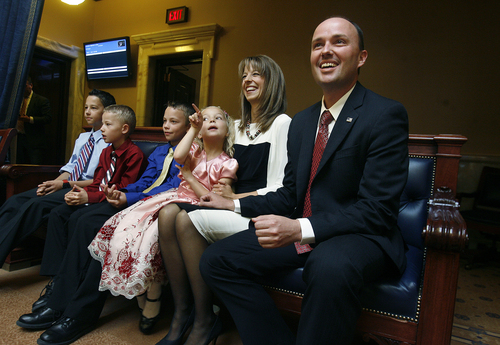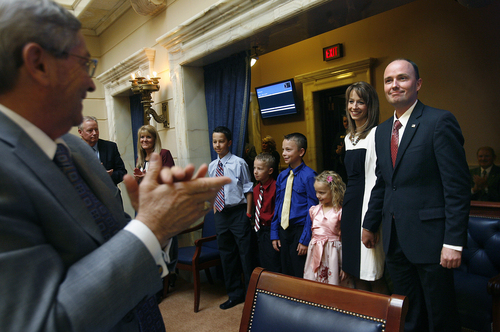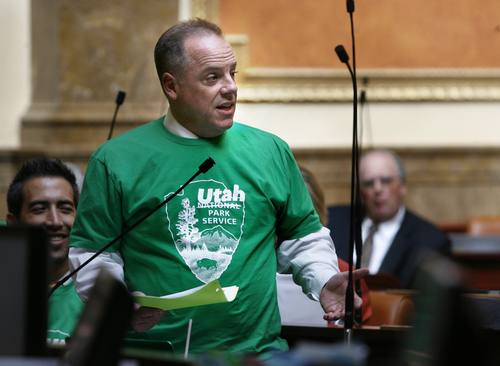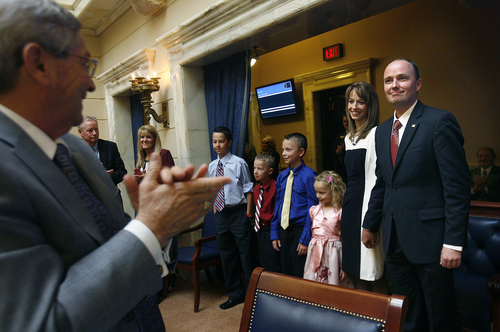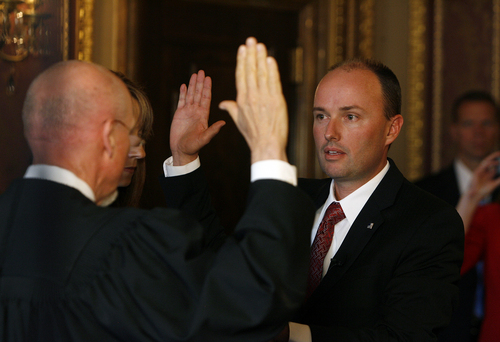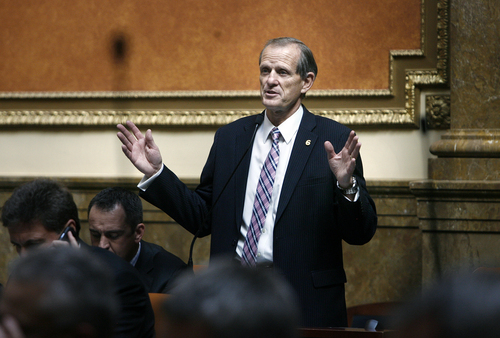This is an archived article that was published on sltrib.com in 2013, and information in the article may be outdated. It is provided only for personal research purposes and may not be reprinted.
Meeting in an emergency session Wednesday, the Utah Legislature approved funding to keep eight national parks and monuments in the state open through Dec. 1, even though a federal shutdown appeared close to ending and, indeed, did end late that night.
Lawmakers signed off on the bills despite the potential budget agreement that was still developing at the time in Washington because, state leaders said, they had no confidence Congress could seal a deal.
In addition, the Legislature unanimously passed a bill to pay health benefits for about 200 Utah National Guard and state Health Department employees furloughed because their jobs are paid with federal funds. If the government shutdown had not been resolved by the end of November, up to 625 employees would have been out of work.
Lawmakers also approved a bill to keep Utah's school lunch programs afloat should the shutdown have continued — a contingency education officials said was unlikely, but possible.
"In a crisis, you have those who run away and those who run in. ... We're running in because there is a problem and we're going to fix it," said House Majority Leader Brad Dee, R-Ogden. "We are the ones who are saying, 'Here, I'm going to help you fix this,' while they run away."
Gov. Gary Herbert praised lawmakers for taking quick action to address the funding concerns.
"In contrast to dysfunction in Washington, D.C., the State of Utah has again demonstrated our ability to come together to find solutions and provide critical stability for our recovering economy," said Herbert, who signed the bills Wednesday night.
Utah taxpayers put up $1.7 million last week to reopen the shuttered national parks after a day of frantic negotiations between Herbert, legislative leadership and the Interior Department. The infusion provided funding to operate those parks for 10 days. The bill adopted Wednesday appropriated $5.9 million, enough to have kept the parks open until Dec. 2 had the federal budget deal fizzled. The legislation also authorized the state to enter into a deal to reopen Bear River Migratory Bird Refuge. Representatives from northern Utah contend the shutdown was impeding refuge participation in the annual duck hunt.
There is no guarantee the state will be repaid any of the money sent to the Interior Department.
"This is a difficult situation to be in, as we see the unfunctional federal government as they shut down parks and do other things," said Senate Majority Whip Stuart Adams, R-Layton. "But the thing that isn't difficult is to see how well the state of Utah manages its affairs."
With a third of Utah's budget reliant on federal funding, House Speaker Becky Lockhart, R-Provo, cautioned House members that they must prepare for future Washington gridlock.
"We need to be on top of this because this is going to happen over and over again," Lockhart said. "What else in the future are we going to decide that we need to keep open with state tax dollars? … This will be our reality in the next decade or maybe [sooner]."
Rep. Brian King, D-Salt Lake City, said he was irritated by the condemnations voiced by conservative Republicans.
He said they belong to the party responsible for the federal shutdown.
"It's galling for me to have to listen to those who subscribe to a philosophy that was the cause of our national government shutdown [to] get up and point to that shutdown as an example of a failure of our American political system," King said. "That's what I've heard. I resent it."
That did not deter Rep. Ken Ivory, R-West Jordan, who blamed the breakdown on the federal government.
"We act today because we can. We balance our budget," he said. "We act because we care, unlike our federal governing partner."
Rep. Jon Stanard, R-St. George, noted that the usually bustling city of Springdale, at the gate of Zion National Park, became "a ghost town" after the shutdown. But Springdale, which is in his district, is booked full again after the state's intervention. "It came back immediately."
Adams said a friend camping in Uinta-Wasatch-Cache National Forest was chased out by a forest ranger who told him the "mountain is closed."
"In Utah, our mountains are not closed," Adams said. "Our bird refuges are not closed. We welcome people to the state."


